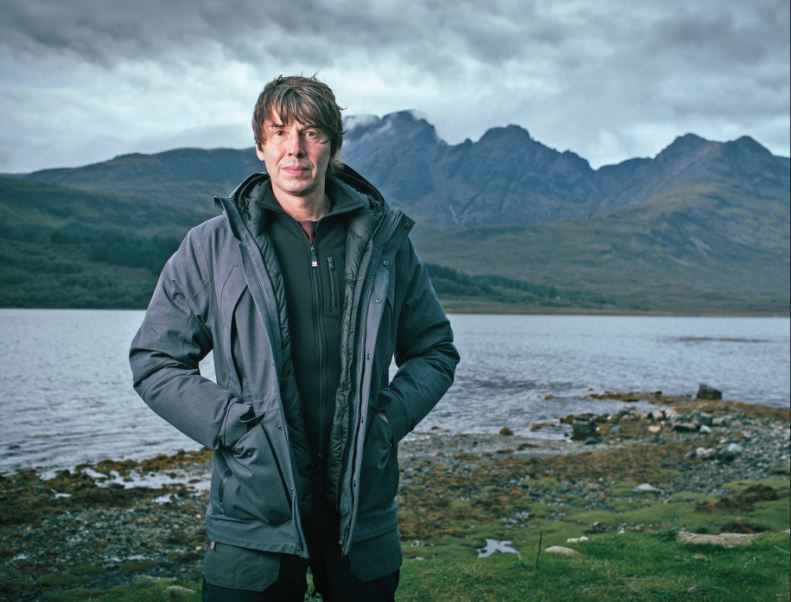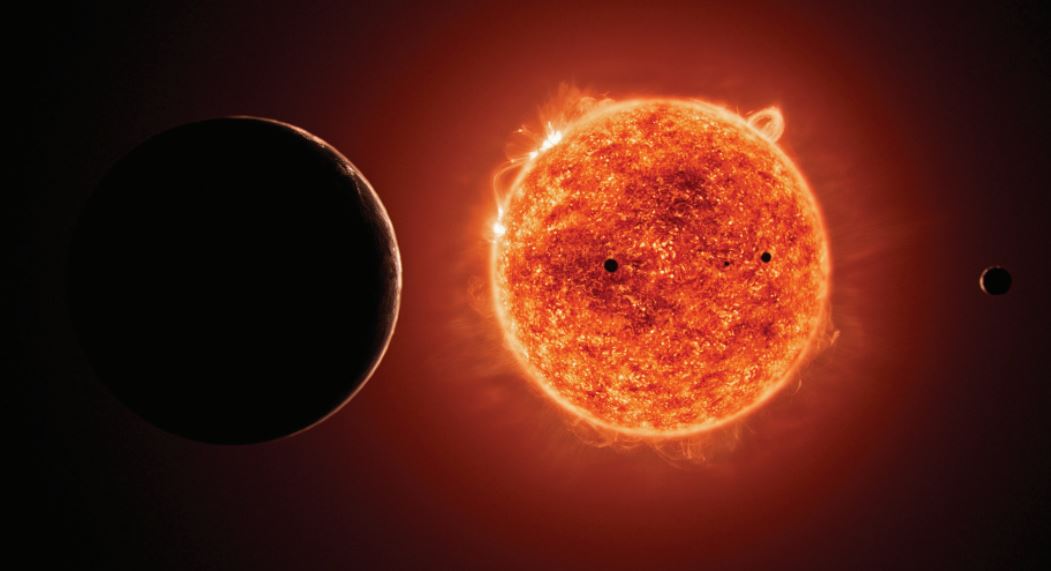Lockdown limits enhance Cox's universal journey


The late British comedian Les Dawson used to joke that if he was on television quiz show Mastermind, his specialist subject would be the universe and all its contents.
Viewers could be forgiven for thinking that science presenter Brian Cox has taken Dawson's joke as a challenge in his latest series Universe, a BBC Studios Science Unit Production with NOVA and WGBH Boston for BBC and PBS, co-produced by video-sharing platform Xigua Video and CMG Film, Drama and Documentary Programming Center, in partnership with the Open University, which can be seen on CCTV-9 and Xigua Video, from Nov 28.
Cox is a household name in the United Kingdom, perfectly straddling the divide between serious academia and mainstream accessibility, as is borne out by his string of hugely popular series and also his sell-out speaking tours, filling arenas around the world talking about astrophysics.
His latest Horizons lecture tour will be visiting Hong Kong's Asiaworld Expo next year, as Cox, who was a successful professional musician before becoming more famous as a science broadcaster, gets back out on the road.
He said the experience of filming the five-part series-covering stars, galaxies, alien worlds, black holes, and the universe itself-in a pandemic had drastically curtailed the number of locations that could be used, and this had impacted the series, making it a testament to the strange times in which it was made.
"Things like lockdown change filming, visually and intellectually," he told China Daily.
"A good example is the galaxies episode, filmed almost exclusively in the Isle of Skye, off the coast of Scotland. From that came the idea that islands are a metaphor for galaxies-they evolve as eco-systems, and operate in quite an isolated way because they're so far apart, so they evolve as islands, but over longer time they do interact through galactic collisions.
"We quoted John Donne's poem'No man is an island entire of itself; every man is a piece of the continent, a part of the main; if a clod be washed away by the sea, Europe is the less… any man's death diminishes me, because I am involved in mankind.'
"No person is an island but a product of their interaction with other human beings, and there's a deep moral message to that. What appears to be a constraint shapes the series. The whole series became more reflective. As a film maker, the emotional historical context should seep into the film you make, so even though the pandemic has got nothing to do with the subject matter, it made it a more reflective film."

In a recent question and answer session after a preview screening of the stars episode, Cox used almost spiritual language to talk about its subject, something that may come as a surprise to his more hard-core rationalist devotees. But he said that if his words provoke a response, he is happy.
"If they find the language difficult, that's good for their education," he explained.
"Science is the process by which we acquire reliable knowledge about the world, so we discover things like the fact that there are 2 trillion observable galaxies. This fact has a wider social context-does it mean we're an insignificant speck in a possibly infinite universe, or considering how rare intelligent life is in the universe, does that mean we're actually more valuable, and we might think differently?
"There's a political component to that. If we're the only place where atoms have come together to think, should we value our planet and civilization a bit more? If you say science programs should only talk about data, and never touch on the wider social or emotional impact of those discoveries, you're saying science should be a separate culture and that's completely erroneous. That means science is to be seen as completely different as a response the human condition to art, music or literature.
"I strongly believe the motivation for all these human activities is the same. You look out at the world, find something of interest, and respond by trying to understand it. That's science, which is a necessary foundation of civilization, but our civilization would be much poorer without music, art and literature.
"I would robustly challenge anyone who things scientists should just stick to the science-that's ridiculous. What we're engaged in as humans is endeavoring to understand our place in the universe-you'll find a lot of things through the eyepiece of a telescope, but you won't find meaning."
Cox admits some of the more cutting-edge research in his programs may leave some viewers baffled, but he says not to worry.
"Look at black holes-we scientists don't really understand the implications of the discoveries we're making, they're so new that no-one has put them into words, so if you want to make a series that goes to the edge, you have to admit that we're on the edge of the known," he said. "I say to the audience don't worry, it's fascinating because nobody understands it."
Next year's Horizons tour will see Cox speaking to fans at venues across the UK, United States, Asia and Australia, something he clearly relishes.
"When you fill an arena with 11-12,000 people, they're clearly science fans, so I find the level I can talk at in those settings is higher, and when you get it right, it can feel like an intimate chat with a room full of people, not a huge venue-I love that," he said.
"The challenge in documentaries is different because the audience is so much wider. Broadcasters will hate me saying this, but I don't measure success any more by viewer numbers, but by whether I think I made a good film. I can be quite critical, and I don't always get it right-but in this series, broadly, I think I did."


















